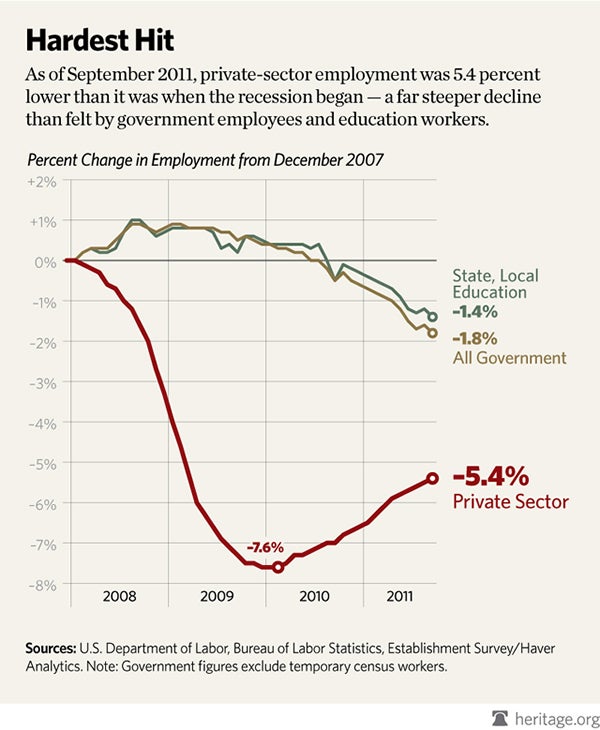Forget the Facts. Reid Says Private-Sector Employment Is ‘Just Fine’
James Sherk /
Apparently unemployment is not much of a problem in the private sector. At least Senator Harry Reid (D–NV) thinks so.
Debating the Senate’s proposed $35 billion bailout for state and local governments, Reid argued, “It’s very clear that private sector jobs have been doing just fine. It’s the public sector jobs where we’ve lost huge numbers, and that’s what this legislation is all about.”
Senator Reid is not just mistaken; he has his facts exactly backwards. If the recession has barely touched one sector of the economy, it is government. Since the recession began in December 2007 the private sector shed 6.3 million net jobs, while government payrolls are down by just 392,000.
That amounts to a 5.4 percent drop in private sector employment, while government employment has slipped only one-third as much (1.8 percent). Education-related government jobs have fallen even less, down 1.4 percent. [Continued below chart]
It is true that government employment decreased slightly over the past year. Over the same period, private-sector employment has grown modestly. That happened because the stimulus expired and states had to balance their budgets. The stimulus did little to boost the economy, but it did keep government payrolls from shrinking. That does not mean we should do it again.
Relatively few government employees are unemployed. Only 4.7 percent of government employees cannot find jobs—half the national unemployment rate. Government employees have the lowest jobless rate of any industry.
Washington, D.C., beat out Silicon Valley to claim the highest income of any metropolitan region in the country. The median household in Washington makes $84,500 a year, compared to the national average of $50,000. The federal government’s headquarters has the strongest economy in the country. Private-sector workers are hardly doing “just fine” compared to government employees.

